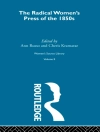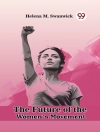This is the first comprehensive study of the language program of the prominent Ukrainian writer and ideologue Pantelejmon Kuliš (1819-1897) whose translations of the Bible and Shakespeare proved most innovative in the formation of literary and the national self-identification of Ukrainians. The author looks at Kuliš’s translations from the perspective of cultural and ethnic studies, presenting literary Ukrainian as a process of negotiation among literary traditions, religions (rites), political movements, and personalities.
This book may be used in university courses on the history of Slavic languages and literatures, contemporary theories of nation-building and national identity as well as language contact and (historical) sociolinguistics. The discussion of language policy in the Russian Empire and Austria-Hungary can be included in regular university courses on Slavic civilizations, history of Central and Eastern Europe (Russia, Poland, and Ukraine).
Зміст
Acknowledgements
Abbreviations
Introduction: Writing a Linguistic Biography of a Ukrainian Maverick
Part I: The Bible
Chapter 1: Exploring Psalmody
The Book of Psalms
Alexandrine Verse or Trochaic Foot?
Invoking Gavrila Deržavin
Church Slavonicisms
“Kulišisms”
Xarkiv Chimes In
The 1897 Poetic Crowning
Chapter 2: The Makings of the Rusian Bible
A Pentateuch Prolusion
Gearing Up for New Challenges
“Poison and Ruin for the Rusian People”
“The Labor Pangs of a Unified Ukrainian Literary Language”
Reception of the Translation
The Sloboda Bulwark
The Archangel Havrylo
Who Else Bears a Grudge?
The Creation of the New Biblical Style
Means of Archaization
Means of Vernacularization
Chapter 3: Galicia “Writes Back”
The West or the East?
Fostering “Rusian Church Vernacular”
Any Palliative Solution?
Lost in Diacritics
To “Secularize” or “Synthesize”?
Chapter 4: Here Comes the Bible!
The Holy Writ Doesn’t Burn
Tobit and Job
At the Crossroads of Poetry and Prose
Ivan Nečuj-Levyc´kyj Takes It Personally
The Pranks of Ivan Franko
Ivan Puljuj Makes His Riposte
How Should It Sound?
How to String Words?
How to Choose Words?
How to Spell Words?
Ivan Nečuj-Levyc´kyj Is Shuffled Backstage
Interpreting Hebrew Poetry
The Book of Job
Lamentations
The Song of Songs
The Versified Bible
Summary
Part II: Shakespeare
Chapter 5: “Oh, Shakespeare, Our Father, Native to All Peoples”
Ethics Avant la Lettre!
Bringing Forth the “Ukrainian Shakespeare”
The First (Over)Reaction
The Language of the “Ukrainian Shakespeare”
On the Threshold of a New Secular High Style
Chapter 6: Expanding the Literary Canon of the “Ukrainian Shakespeare”
The First Step Is the Hardest?
“Huculia Did Not Appear; Rather Shakespeare Was Merely Hidden”
Hamlet or Hamljet? That Is the Question
Hamlet in Peasant Leather Shoes
The Younger Generation Steps to the Fore
“We Are All Peasants Today”
One or Multiple Homesteads?
Conclusion: Detours Offered But Never Taken
Bibliography
Indices
Geographical and Personal Names
Subjects and Titles of Literary Works and Translations
Word-forms
Про автора
Andrii Danylenko is a well-known Slavists who edited and authored several books on Slavic linguistics and philology as well as dozens of studies on a wide array of topics ranging from Indo-European to literary Ukrainian. He is an editorial Board member of several publications and a reviewer for numerous publications and programs in North America, Europe, and Japan.












